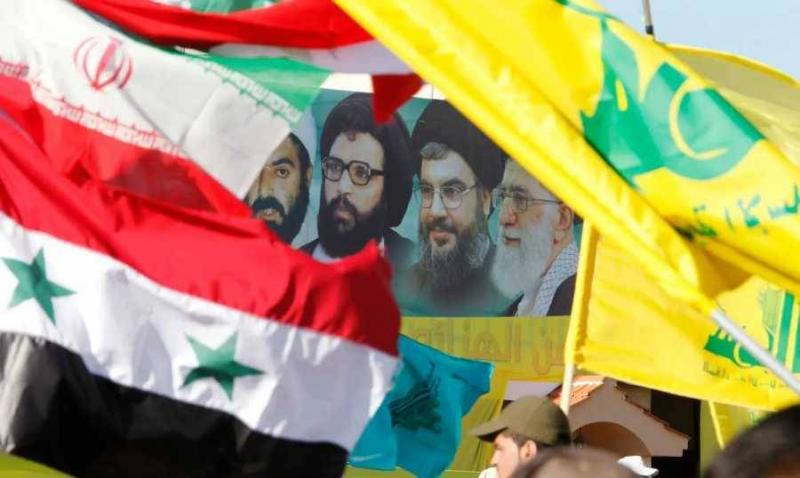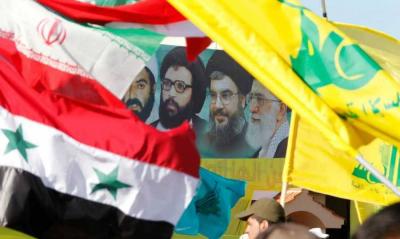Many Lebanese fear that Iran might delegate Hezbollah the task of responding to Israel's attack on its consulate in Damascus on Monday, which resulted in 13 deaths, including seven members of the Iranian Revolutionary Guard. Following Tehran's decision to refrain from direct involvement in the ongoing regional confrontations due to the Al-Aqsa Flood operation, and its decision to task its allies with supporting Gaza, many doubt that Iran will choose to enter the battle directly today. Instead, they expect Tehran, if it decides to retaliate for the recent blow it suffered in Damascus, to delegate this task to one of its allies, chiefly Hezbollah, which has aimed to turn the southern Lebanese front into a support and assistance area for Gaza over the past six months.
Mazen Matar, a 36-year-old bank employee, expressed that he fears a broader war more than ever, especially if Iran assigns Hezbollah to respond to the painful strike it suffered in Damascus. He stated in an interview with Asharq Al-Awsat that the Lebanese have been drawn into a war that does not concern them, and the fear of the war expanding is real, which could lead to the country's destruction.
Strategic Patience... Once Again
Dr. Hilal Khashan, a political science professor at the American University, doubts that there will be an Iranian response to the attack on the consulate in Damascus. In a statement to Asharq Al-Awsat, he noted that Tehran and its allies refer to "strategic patience" after each blow, relying on the excuse of responding at the suitable time and place—a response that never materializes. Khashan predicts a neglect of the issue (i.e., ignoring the response) or assigning Hezbollah to carry out symbolic strikes that won't change the situation significantly. He added that these operations are no longer convincing for the popular bases of the axis, where discontent has reached unprecedented levels, emphasizing that harsh responses from Israel have been typical in recent years against any actions from Tehran's allies; thus, the attack on the consulate followed the missile fired from Syria towards Eilat.
Khashan believes that a war in Lebanon is inevitable after the conclusion of the Rafah operation, expecting an Israeli ground invasion of southern Lebanon, considering that Hezbollah will be pressured to withdraw from southern Litani, willingly or by force.
Strike Against Iranian Interior
On the other hand, Riyad Kahwaji, head of the Middle East and Gulf Military Analysis Center (Enigma), states that it is difficult to determine the form of Iran's response to the Damascus attack, as Tehran considers many factors. From the outset, it aims to remain outside any war, and when it informed Washington there would be no escalation during their allegedly scheduled meeting in Muscat in January, it meant that it would not enter the war, not that it would prevent the war's spread in the region. Kahwaji remarked to Asharq Al-Awsat that the strike executed by Israel on Monday is a message to Iran, indicating it will not remain insulated from the war if it continues to escalate through its allies. He added that if there is no strong response from Iran, the next Israeli step would be to strike inside Iran. Today, Tehran is at a crossroads; it must decide whether to engage directly in the war, leading to significant military expansion in the region, or to calm matters through a weak response from one of its proxies.
A "Mutually Understood" Response
Former Lebanese ambassador to Washington, Riyad Tabara, anticipates that the Iranian response will be direct, with its parameters implicitly agreed upon to avoid reaching a full-scale regional war. He stated in an interview with Asharq Al-Awsat that despite the significant tension in the region, no major player (the U.S., Iran, or Europe) wants an extensive war. Furthermore, Israel cannot initiate a war without American approval, and any indirect response through militias allied with Iran is unlikely as it would not meet the needs and could spiral out of control into a regional war that no one desires.
In a televised interview, Charles Jebur, head of media and communication at the Lebanese Forces, noted that Iran does not directly attack Israel because it knows the balance of power is not in its favor, and it would be defeated if it took such action. He pointed out that Israel provokes the resistance axis and entices Iran into confrontation, asserting that he is certain there will not be any classical response from Iran; instead, the response will come through its affiliated arms.




